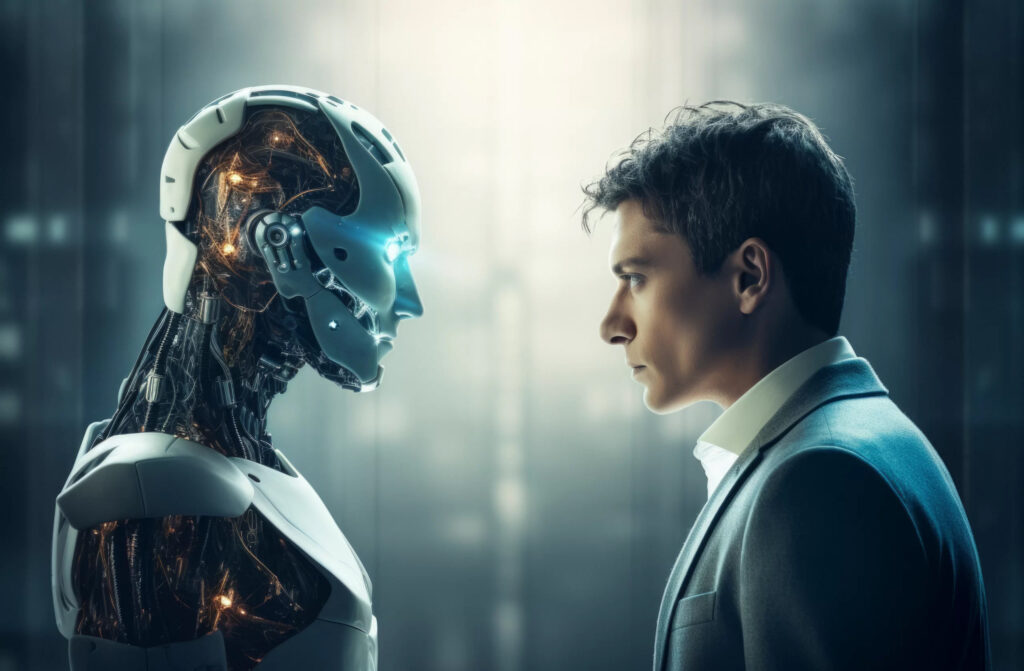
Artificial Intelligence (AI) has rapidly advanced, reshaping industries and challenging traditional roles. Many wonder whether AI can replace human experts or if human intelligence remains irreplaceable. As technology evolves, understanding the strengths and weaknesses of both AI and human expertise is crucial.
AI has transformed multiple industries, excelling in data analysis, automation, and pattern recognition. AI-powered systems can process vast amounts of data at speeds no human can match. In fields like finance, AI algorithms detect fraud and make real-time investment decisions. Similarly, AI in marketing personalizes customer experiences, predicting behaviors based on previous interactions.
A compelling example of AI's growing influence is its role in sports analytics. AI has been used to fill out NCAA tournament brackets, predicting outcomes based on historical data. However, these predictions often miss unexpected upsets, demonstrating AI's reliance on past patterns rather than real-time intuition. (MarketWatch)
AI has also entered the healthcare industry, with AI-powered nurses assisting with patient monitoring and medical data management. While these systems improve efficiency, many healthcare professionals argue that AI lacks the emotional intelligence needed to provide genuine patient care. Some nurses have even pushed back against the increasing use of AI in hospitals, believing it can never fully replace human compassion and experience. (AP News)
In creative fields, AI is challenging human expertise by generating art, writing articles, and even composing music. Many photographers, illustrators, and translators are concerned about AI replacing their roles. Some professionals have already started looking for alternative careers as AI-generated content gains popularity. (The Guardian)
Despite AI’s advancements, human experts bring critical thinking, creativity, and ethical decision-making that AI cannot replicate. Human judgment is vital in areas where emotions, empathy, and moral considerations play a role.
For example, in customer service, AI chatbots can handle simple queries, but they struggle with complex issues requiring emotional intelligence. Research shows that customers prefer human support when dealing with sensitive problems, as AI-generated responses often lack empathy. A study found that customers are willing to wait longer for a personal response rather than receiving an immediate but impersonal AI reply. (Financial Times)
In fields like art authentication, AI can analyze brushstrokes and material composition, but human experts provide historical context and artistic interpretation. While AI can determine if a painting matches a specific artist's style, human connoisseurs assess artistic intent and authenticity. Combining AI’s precision with human insight results in more reliable evaluations. (Wired)
Another area where human judgment is crucial is law and ethics. AI can review legal documents and suggest rulings based on past cases, but human lawyers are essential for interpreting laws and understanding societal implications. Legal decisions often require moral reasoning that AI lacks.
Rather than viewing AI and human expertise as competitors, many experts believe in a collaborative approach. AI can handle repetitive, data-intensive tasks, allowing humans to focus on creative problem-solving, strategic thinking, and ethical decision-making.
In medicine, AI helps doctors diagnose diseases by analyzing patient data, but final medical decisions require a doctor’s expertise. In finance, AI predicts market trends, but human investors consider global events and economic shifts beyond what AI algorithms can calculate. (Sapien)
AI and human intelligence are not mutually exclusive. The best results often come from a balanced approach, where AI enhances efficiency and human experts provide deeper understanding. The future of work will likely involve AI as an assistant rather than a replacement for human professionals.
AI has undeniably changed the way industries operate, offering unmatched speed and efficiency. However, AI alone cannot replace human expertise in areas requiring emotional intelligence, ethical reasoning, and creative problem-solving. While AI excels in data-driven tasks, human professionals remain indispensable for making complex, nuanced decisions.
The ideal future is not a battle between AI and humans but a collaboration where each complements the other’s strengths. By leveraging AI for repetitive tasks and relying on human judgment for critical thinking, businesses and industries can achieve the best outcomes.
No. While AI can automate many tasks, human expertise is necessary for problem-solving, ethical considerations, and emotional intelligence.
AI is widely used in healthcare, finance, customer service, and marketing for automation, predictive modeling, and data analysis.
AI lacks emotional intelligence, ethical judgment, and the ability to interpret abstract concepts and human emotions.
Businesses should use AI for data-heavy tasks while allowing human experts to handle creative decision-making and customer interactions.
The future lies in a hybrid approach, where AI supports efficiency and human experts provide insight, creativity, and ethical guidance.